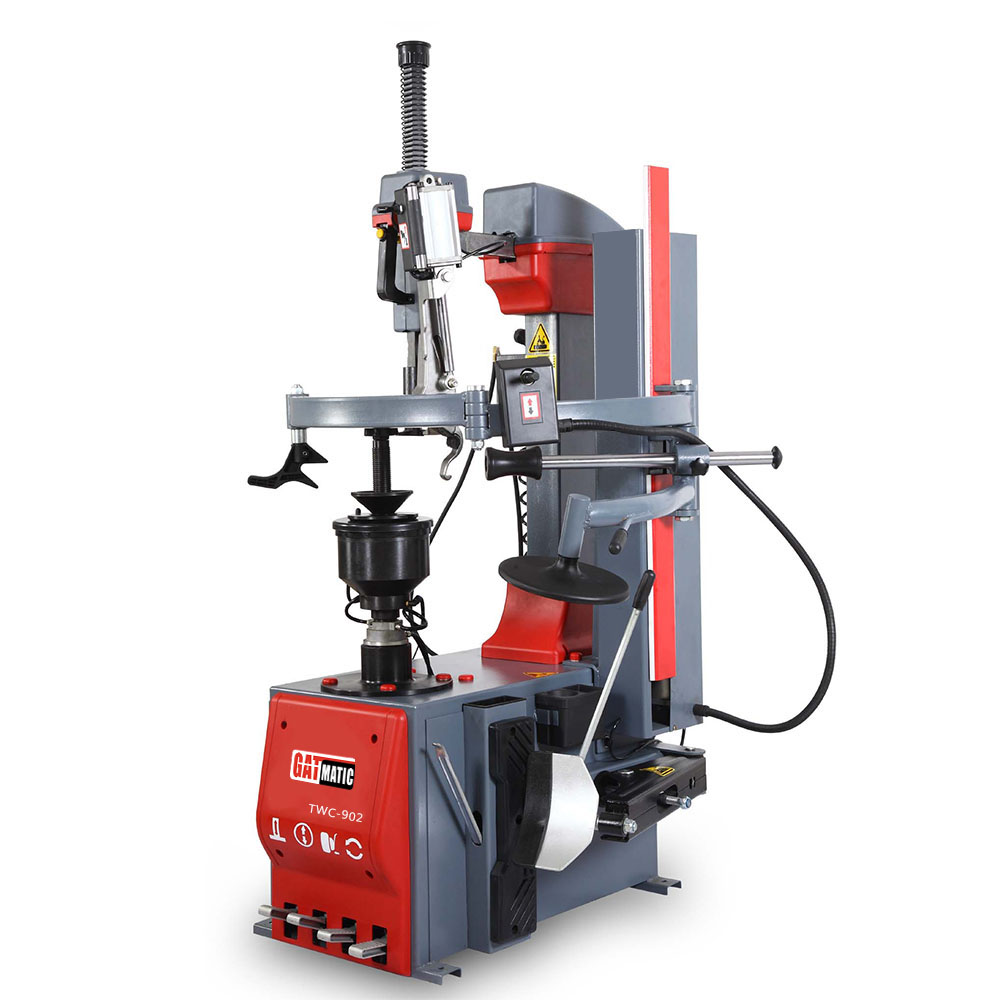Are advanced tire changers suitable for small automotive businesses?
Advanced tire changers represent a significant leap in automotive technology, designed to streamline and enhance the process of tire changing through automation and precision. These machines are essential tools in any automotive business, ensuring quick, efficient, and safe tire changes. This essay explores the suitability of advanced tire changers for small automotive businesses, weighing their benefits, challenges, and overall impact on business operations.
I. Understanding Advanced Tire Changers
Advanced tire changers come equipped with a range of sophisticated features that set them apart from traditional models. These features include automated functions that minimize manual labor, precision mechanisms that ensure perfect tire fitting, safety measures that protect both the operator and the vehicle, and the versatility to handle various tire sizes and types. Types of advanced tire changers vary, including fully automated models that handle the entire process with minimal human intervention, touchless tire changers that avoid contact with the rim to prevent damage, and leverless tire changers that eliminate the need for physical levers, reducing operator fatigue.
II. Benefits of Advanced Tire Changers for Small Businesses
For small automotive businesses, advanced tire changers offer numerous advantages. Firstly, they significantly increase efficiency and productivity, allowing businesses to serve more customers in less time. This efficiency translates into reduced labor costs, as fewer employees are needed to perform tire changes. Enhanced safety features protect workers from common injuries associated with manual tire changing, fostering a safer workplace environment. Moreover, the precision and versatility of advanced tire changers result in higher customer satisfaction, as clients receive fast, reliable service regardless of their tire type or size.
III. Challenges and Considerations
Despite their benefits, advanced tire changers present several challenges, particularly for small businesses. The high initial investment cost can be a significant barrier, requiring careful financial planning. These machines also require substantial space, which might be limited in smaller workshops. Training employees to use advanced tire changers is crucial but can be time-consuming and costly. Additionally, ongoing maintenance and repair costs must be factored into the overall budget. Compatibility with existing business infrastructure is another consideration; advanced tire changers must integrate seamlessly with other equipment and processes.
IV. Cost-Benefit Analysis
Conducting a cost-benefit analysis is essential for small businesses considering advanced tire changers. While the short-term financial impact includes high purchase and installation costs, the long-term benefits often outweigh these initial expenses. Increased efficiency, lower labor costs, and higher customer satisfaction contribute to a favorable return on investment (ROI). Compared to traditional tire changers, advanced models offer superior performance and long-term savings, making them a worthwhile investment for many small businesses.
V. Case Studies
Examining case studies of small businesses that have adopted advanced tire changers provides valuable insights. Success stories highlight the positive impact on productivity, safety, and customer satisfaction. For example, a small garage that invested in touchless tire changers saw a marked increase in customer traffic and revenue. Conversely, analyzing businesses that faced challenges with these machines can offer lessons on potential pitfalls, such as underestimating the space required or the training needs of employees. These real-world examples underscore the importance of thorough planning and research.
VI. Alternatives to Advanced Tire Changers
Small businesses not ready to commit to purchasing advanced tire changers have several alternatives. Leasing or financing options spread the cost over time, reducing the immediate financial burden. Purchasing used or refurbished machines can also be a cost-effective solution. Additionally, forming partnerships with larger automotive businesses can provide access to advanced equipment without the need for outright ownership.
VII. Decision-Making Factors for Small Businesses
When deciding whether to invest in advanced tire changers, small business owners should consider several factors. Assessing the volume of tire changes and the business’s overall size helps determine the necessity of such an investment. Financial health and budget constraints are critical, as the initial costs can be substantial. Long-term business goals and growth plans should also influence the decision; advanced tire changers can support expansion and increased customer demand. Finally, the capabilities and adaptability of employees to new technology are essential for seamless integration.
Conclusion
Advanced tire changers offer numerous benefits for small automotive businesses, including increased efficiency, reduced labor costs, enhanced safety, and improved customer satisfaction. However, challenges such as high initial investment costs, space requirements, and the need for employee training must be carefully considered. A thorough cost-benefit analysis and examination of alternatives can guide small business owners in making an informed decision. Ultimately, with careful planning and research, advanced tire changers can be a valuable asset to small automotive businesses, supporting growth and improved service quality.
FAQs
1. What are advanced tire changers?
Advanced tire changers are automated or semi-automated machines designed to make the process of changing tires more efficient, precise, and safe. They often include features such as touchless operation, leverless mechanisms, and the ability to handle a wide range of tire sizes and types.
2. How do advanced tire changers differ from traditional tire changers?
Advanced tire changers offer automated functions that reduce manual labor, precision mechanisms for accurate tire fitting, enhanced safety features, and greater versatility. Traditional tire changers typically require more manual intervention and may not have the same level of precision or safety features.
3. What are the benefits of using advanced tire changers in a small automotive business?
The benefits include increased efficiency and productivity, reduced labor costs, enhanced worker safety, improved customer satisfaction, and the ability to handle various tire sizes and types. These machines can help small businesses serve more customers quickly and reliably.
4. Are there any challenges associated with using advanced tire changers in a small business?
Yes, challenges include the high initial investment cost, space requirements, the need for employee training, ongoing maintenance and repair costs, and ensuring compatibility with existing business infrastructure.
5. How much does an advanced tire changer typically cost?
The cost can vary widely depending on the model and features, but advanced tire changers generally range from a few thousand to tens of thousands of dollars. Leasing or financing options are available to help spread the cost over time.
6. Is the investment in advanced tire changers worth it for small businesses?
While the initial cost is high, the long-term benefits such as increased efficiency, reduced labor costs, and higher customer satisfaction often result in a favorable return on investment (ROI). A thorough cost-benefit analysis can help determine if the investment is worthwhile for a specific business.
Describe Your Needs In Detail!
We will carefully evaluate your needs and give professional solutions.



